Die Einsame (from Vier Notturnos, Op. 22, no. 1)
-
Ships in 2 to 3 weeks
Details
Description
SKU: AN.AMP-0044
Composed by Heinrich von Herzogenberg. Edited by Richard Bloesch and William Hatcher. Octavo. Alliance Music Publications #AMP 0044. Published by Alliance Music Publications (AN.AMP-0044).Herzogenberg/Bloesch.
This poem has a curious history. It appeared first in Eichendorffs short story Das Schloss Durande (The Castle of Dyrande), where it is sung by the hunter Renald, who is waiting in the forest to take revenge against his master, the count of Duurande, for his supposed dishonoring of Renald's sister Gabriele. When the poem was published in the 1841 edition of the collectedpoems, it became the third poem in the four-poem cycle Die Einsame, and was completely transformed in meaning. It now described the secret thoughts of a woman, thoughts which are revealed only in the fourth poem (Im beschrankten Kreis der Hugel-not set by Herzogenberg) as thoughts of unrequited love.The poem, along with two other poems of Eichendorff set by Herzogenberg in the Vier Notturnos(Wie schon, hier zu vertraumen, and Die Nacht), is typical of the romantic poet's obsessionwith the symbol of night. According to Edward F. Kravitt, the role of night in German romanticism is crucial....Romanticists equated day with reason and society's conventions, and night with romance and escape from those conventions.1 Herzogenberg's setting is dominated by rippling sixteenth-note figuration in the piano part, whichsurely is meant to evoke the rustling forest, the swaying treetops, and the running brooks.
Joseph von Eichendorff (1788-1857)
Eichendorff's life was outwardly uneventful. After studying law in Halle and Heidelberg, he spent most of the rest of his life in the Prussian civil service. On the other hand, he developed friendships with the leading figures of the emerging romantic movement in Germany, including Clemens Brentano, Achim von Arnim, Friedrich Schlegel, E. T .A. Hoffman, and Felix Mendelssohn. His poems inspired many song writers, among them Schumann, Mendelssohn, Brahms, Franz, Wolf,R. Strauss, and Pfitzner. He is considered today one of Germany's foremost lyric poets of the Romantic period. Nature imagery dominates most of Eichendorff's poetry; favorite leitmotifs are homeland,moonlight, night, forest solitude, forest murmurs, wandering, and nightingales. It is important to recognize, however, that these images are not simple, naive, or predictable, but are, rather, revelations of an inner psychological landscape. All of his poetry is imbued with an unwavering Catholic faith. God and nature-these two principal elements in Eichendorff's work were formed early in the poets childhood. ..[He] embraced an artistic view that recognized the task of poetry as a religious representation of the eternal, reflected in earthly symbols. ..2According to Liselotte M. Davis: The appeal of Eichendorff's poetry, which has not diminished with time, lies in a perfect union of content and form, embellished by the musicality of his language. Eichendorff, more than any other poet, was responsible for the discovery that such a musicality existed. That he was aware of its existence can be seen in the often-quoted four--ine poemWunschelrute (Diving Rod):
Schlaft ein Lied in allen Dingen,
Die da Traumen fort und fort,
Und die Welt flingt an zu singen,
Triffst du nur das Zauberwort.
A song lies slumbering in all things,
Which are dreaming on and on,
And the world begins to sing,
If you but find the magic word.3
1Edward F. Kravitt, Romanticism Today, Musical Quarterly (Spring, 1991), p. 102.
2Thilo Reinhard, Ed., The Singer's Schumann (New York, 1989), pp 35-36.
3Liselotte M. Davis, ldquo;Joseph Freiherr von Eichendorff, in German Writers in the Age of Goethe1789-1832, ed. by James Hardin and Christoph Schweitzer, in the series: Dictionary of Literary Biography(Detroit, 1989), Vol., p. 68.
Heinrich von Herzogenberg (1843-1900)
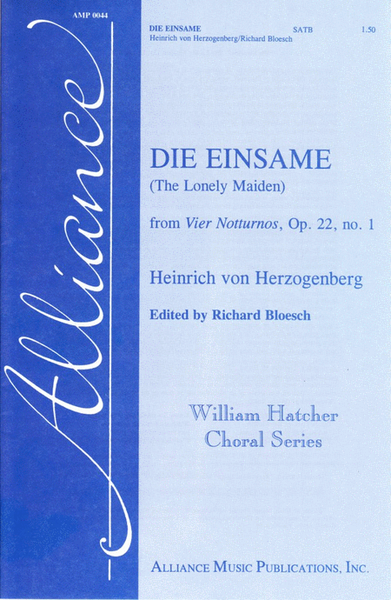
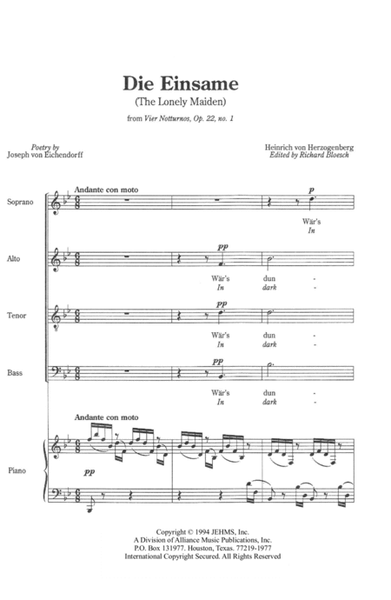
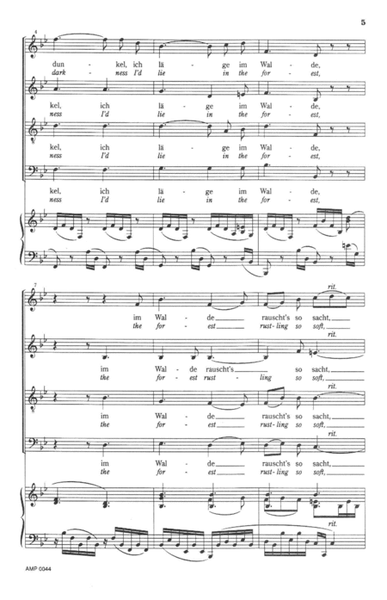
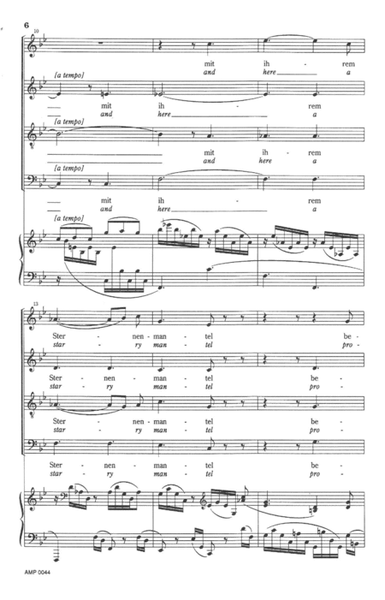
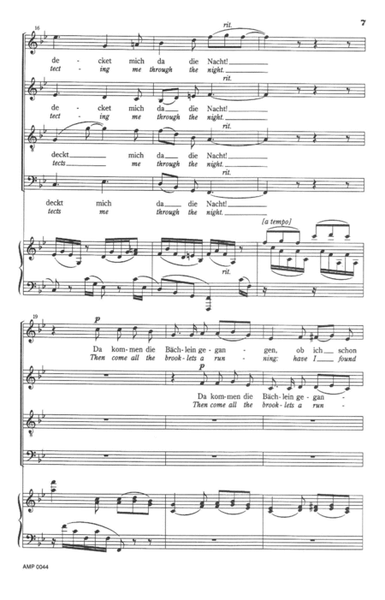
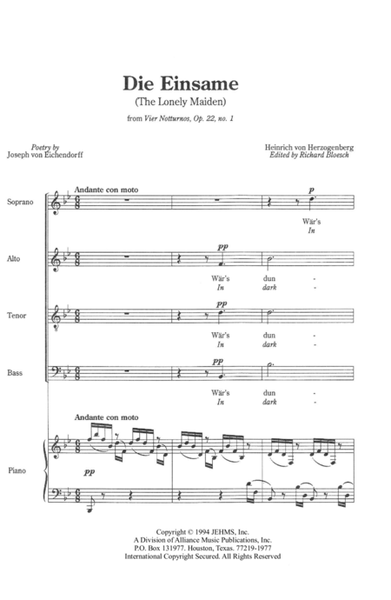
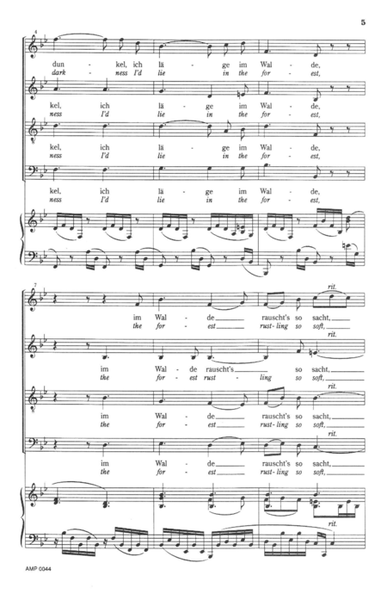
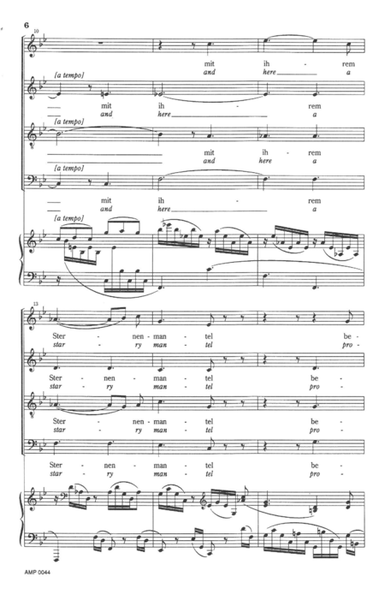
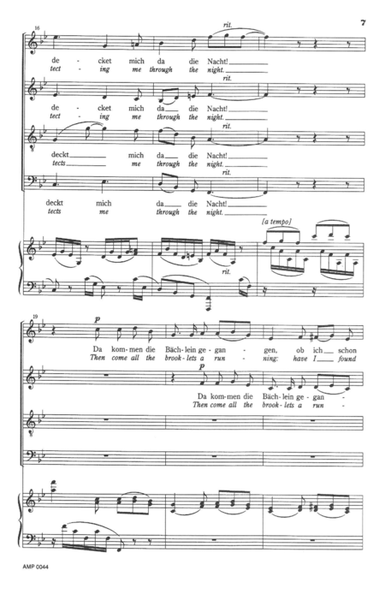
 Share
Share